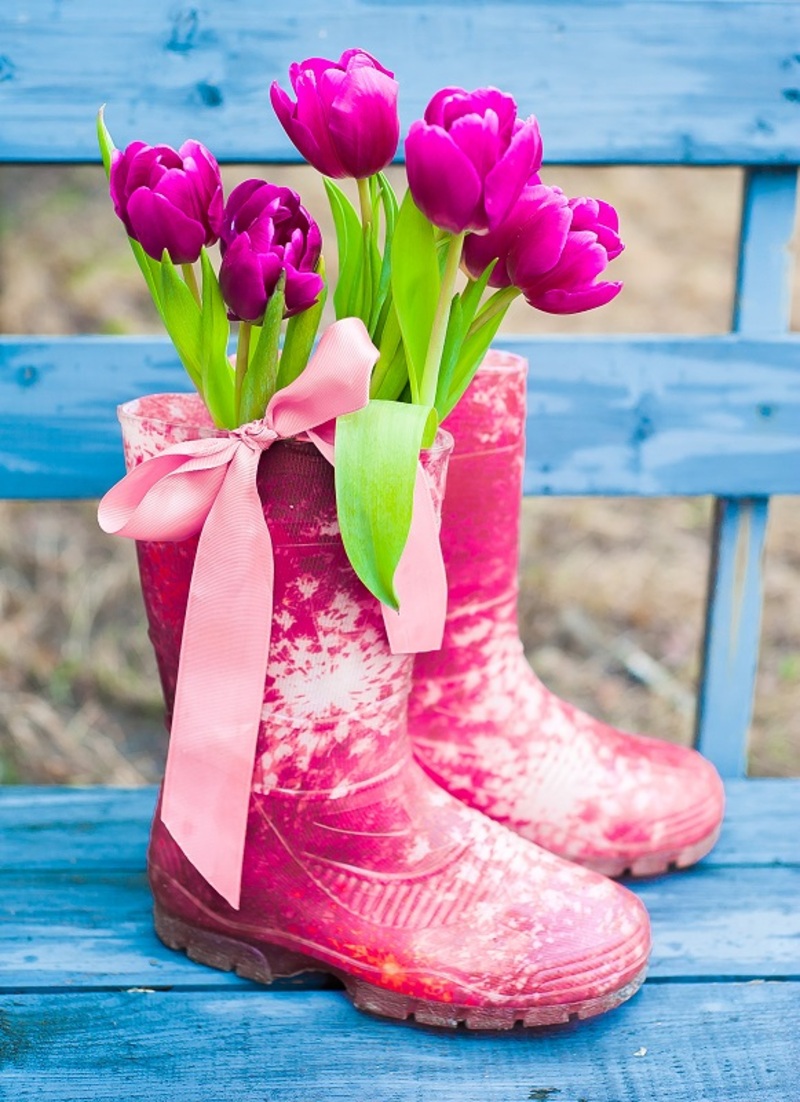Dive into Unheard-of Facts About Sunflowers
Posted on 30/08/2025
Dive into Unheard-of Facts About Sunflowers
When you think of sunflowers, what comes to mind? Perhaps it's their bright yellow petals turning to face the sun or vast fields waving in the summer breeze. But did you know there's far more to these radiant plants than meets the eye? From their fascinating biology to their rich cultural symbolism, sunflowers harbor a wealth of surprising secrets. Join us as we dive into unheard-of facts about sunflowers and discover the hidden wonders behind this iconic bloom!
The Intriguing Origins of Sunflowers
Most people associate sunflowers with picturesque European landscapes, but did you know their roots trace back thousands of years to the Americas? Archaeological evidence shows that sunflowers were domesticated by indigenous peoples in North America as early as 3000 BC.
- Sunflowers were grown for food, oil, and dyes long before European settlers arrived.
- They played a pivotal role in the diets and spiritual practices of Native American tribes.
- After Spanish explorers brought sunflower seeds back to Europe in the 16th century, the flower quickly captivated the continent.
Today, Russia and Ukraine lead the world in sunflower production—all thanks to a plant native to the Americas!

Biology Beyond the Bloom: What Makes a Sunflower Unique?
Sunflowers and the Miracle of Heliotropism
One of the most unusual sunflower facts is their ability to track the sun. Young sunflower buds move their heads from east to west during the day in a phenomenon called heliotropism.
- This daily sun-tracking maximizes light absorption, supporting faster and healthier growth.
- Once sunflowers mature, their heads face east consistently, offering warmth for pollinating bees early in the morning.
- Recent research suggests that this orientation may also help prevent fungal infections by drying dew more quickly.
Not a Single Flower: The Composite Marvel
Did you know a single sunflower isn't one flower but hundreds? The bright "petals" are ray florets, while the dark center is made up of thousands of tiny individual flowers called disc florets.
- Each disc floret can develop into a seed when pollinated, resulting in the sunflower's bounty.
- This composite structure creates the iconic sunflower head—a marvel of nature's engineering.
- The pattern of disc florets follows the Fibonacci sequence, maximizing seed arrangement efficiency!
Unheard-of Uses for Sunflowers
Oil and Nutrition: More than Just a Pretty Face
When discussing sunflower uses, sunflower oil may come to mind. But did you know this oil is prized not only for its mild flavor but for being exceptionally high in vitamin E and unsaturated fats?
- Sunflower seeds are a key ingredient in granola, health snacks, and even alternative nut butters.
- The sprouts and edible petals add vibrant color and nutrition to salads and gourmet dishes.
- Sunflower oil is used in cosmetics for moisturizing sensitive skin, in addition to culinary applications.
Eco-Friendly Phytoremediation
Did you know? Sunflowers can clean up the environment. This plant is a superstar in the world of phytoremediation—the use of plants to absorb pollutants from soil and water.
- After the Chernobyl disaster, sunflowers were planted to extract radioactive elements from contaminated groundwater.
- They can also remove heavy metals, including lead, arsenic, and zinc, from urban soils.
- Sunflowers represent a natural solution for restoring polluted lands across the globe.
Cultural Symbolism and Sunflower Superstitions
Global Significance
Sunflowers are not just agricultural marvels—they're steeped in symbolism. Across cultures and centuries, sunflowers have been seen as emblems of adoration, loyalty, and joy.
- In Greek mythology, the sunflower is linked to the nymph Clytie, whose love for the sun god Helios transformed her into the flower.
- For Native American people, sunflowers symbolized harvest, bounty, and spiritual worship.
- Modern artists, most famously Van Gogh, have used sunflowers to represent happiness and resilience.
Unheard-of Beliefs
There are countless superstitions surrounding sunflowers:
- In some cultures, facing a bouquet of sunflowers toward a new entrance is believed to attract good luck and positive energy.
- Their eastward orientation is seen as a symbol of faith and devotion – always turning toward the light, no matter what.
- Sunflower seeds were once carried in pockets as a charm to guard against envy and ill will.
Unusual Sunflower Varieties and Records
Not All Sunflowers Are Yellow
The traditional vision of a golden sunflower is just the beginning! Varieties today range from deep reds to creamy whites and even bi-colors.
- 'Moulin Rouge' blooms dark burgundy petals, while 'Italian White' dazzles with pale lemon hues.
- Some sunflowers, like 'Teddy Bear', are compact, fluffy, and completely unique in texture.
- The diversity of sunflowers keeps expanding, captivating gardeners and florists alike.
Record-Breaking Sunflowers
Sunflowers are renowned for their imposing stature, but some have truly reached sky-high status.
- The world's tallest recorded sunflower reached over 30 feet tall (9.17 meters) in Germany, 2014.
- Sunflower heads can be enormous too—measuring up to 32 inches (81 centimeters) across!
- Gardeners compete yearly to grow the tallest and biggest sunflowers, making the plant a staple at agricultural fairs.
Surprising Ecological Benefits of Sunflowers
Creating Pollinator Havens
Sunflowers are an essential food source for bees, butterflies, and birds. Their rich pollen and nectar support pollinator populations, which are crucial for entire ecosystems.
- Sunflower fields can sustain declining native bee species.
- Birds, including finches, feast on nutritious seeds long after flowering season has passed.
- Some farmers use sunflowers as 'trap crops' to protect vegetable gardens from pests, as their large leaves attract and contain infestations.
Soil Health and Erosion Control
The deep, strong roots of sunflowers help stabilize soil, prevent erosion, and add organic material back into the ground when decomposed.
- Sunflowers are often used as a cover crop in sustainable agriculture, improving soil fertility for future plantings.
- They recycle nutrients efficiently, adding to their value beyond crop yields.
Fun and Fascinating Sunflower Trivia
- NASA sent sunflowers into space to study how plants grow in zero gravity aboard the International Space Station.
- Vincent van Gogh painted his famous series of sunflower paintings as a symbol of friendship and optimism.
- Sunflower seeds have even found their way onto the baseball field as a popular chewing snack for athletes.
- The name "sunflower" comes from the Greek word 'Helianthus', meaning "sun flower". The scientific name, Helianthus annuus, literally describes its annual life cycle.
- Sunflower honey is lighter in color but richer in flavor compared to many other varieties of honey.

How to Grow Sunflowers Successfully at Home
Tips for Healthy and Happy Sunflowers
- Choose a sunny spot: Sunflowers need at least 6-8 hours of direct sunlight daily.
- Sow seeds deep: Plant at least 1 inch (2.5 cm) deep for strong root development.
- Space out the seeds: Depending on the variety, give 12-36 inches (30-90 cm) between plants to prevent crowding.
- Water wisely: Keep soil moist but well-drained, avoiding overly soggy conditions.
- Support tall varieties: Use stakes for giants that may topple in windy conditions.
Bonus tip: Harvest seeds when the back of the flower head turns brown and seeds begin to dry!
Conclusion: The Lasting Magic of Sunflowers
From their prehistoric origins to their modern-day uses in art, agriculture, and environmental science, sunflowers are as astonishing as they are beautiful. Their remarkable adaptations, vibrant varieties, and diverse roles in human culture make them stand out not only on the farm but also in hearts around the world. We hope these unheard-of facts about sunflowers have inspired you to see this familiar flower in a new light.
Whether you're a gardener, a sunflower lover, or simply someone who appreciates the wonders of nature, there's always more to uncover about these golden giants. The next time you pass a sunflower, remember: there's much more than sunlight and smiles beneath those radiant petals.
Related Articles:
- The Science of Heliotropism: Why Sunflowers Follow the Sun
- How to Harvest and Use Sunflower Seeds at Home
- Unusual Garden Flowers: Sunflower Varieties You Haven't Heard Of
Share these surprising sunflower facts with your friends or fellow gardeners, and let everyone enjoy the true wonders of Helianthus annuus!
Latest Posts
Ensuring Your Poinsettias Thrive Past the Holidays
The Power of Red Roses on Valentine's Day Explained
Maximize the Freshness of Cut Flowers






